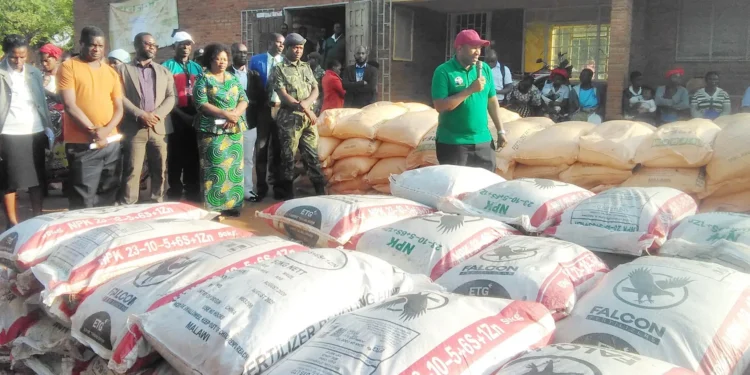Ghana’s Treasury market witnessed another round of modest investor participation as the government’s latest short-term bills auction cleared significantly below its target, even as yields ticked upward to attract demand.
The shortfall underscores persistent liquidity constraints and cautious investor sentiment in the money market.
In the most recent auction, the government aimed to raise GH¢6.58 billion but managed to secure only GH¢2.93 billion in bids, representing a 55.51% shortfall from the set target. Out of the total bids tendered, GH¢2.89 billion was accepted, leaving a modest GH¢36.46 million rejected.
This subdued investor participation points to tightening liquidity conditions within the banking system, which have continued to limit appetite for short-term government securities despite recent efforts by the Treasury to stabilize yields and manage refinancing pressures.
Market analysts believe that the underperformance reflects a growing divergence between government borrowing needs and investors’ risk appetite. “The low subscription level reveals continued liquidity stress among banks and financial institutions, which are the primary buyers of short-term government securities,” one analyst told The Vaultz News.
Yields Edge Up Across the Curve
In response to the weak subscription levels, yields on all tenors of Treasury bills recorded slight increases, signaling market repricing aimed at stimulating interest. The 91-day bill climbed by 17 basis points to 10.70%, while the 182-day bill advanced by 13 basis points to 12.44%. Similarly, the 364-day bill edged higher by 6 basis points to 12.92%.
According to Databank Research, the upward adjustment in yields was a strategic move to improve participation in subsequent auctions. “We believe the modest rise in yields reflects repricing considerations to attract demand. This is expected to improve investor interest without compromising the Treasury’s cash management strategy,” the report noted.
Databank further projected that yields would remain “broadly stable” in the near term, with a “slight upward bias at the short end” due to persistent tight liquidity conditions across the financial sector.
Q4 Borrowing Plan Targets GH¢75.7 Billion
The government’s broader borrowing plan for the fourth quarter of 2025 is equally ambitious. The Finance Ministry has announced plans to borrow GH¢75.7 billion from the Treasury market between October and December 2025. Out of this total, GH¢67 billion is earmarked for the rollover of maturing debts, while GH¢8.12 billion represents new or fresh borrowing.
This move is part of government efforts to maintain liquidity in the domestic debt market, ensure continuous refinancing of maturing obligations, and support short-term fiscal operations. The Treasury intends to rely heavily on 91-day bills, which continue to dominate the short-term securities market.
In the upcoming auction, the Treasury seeks to raise GH¢6.82 billion through the issuance of 91-day, 182-day, and 364-day bills to cover GH¢6.65 billion in maturing securities. However, with current liquidity conditions remaining tight, meeting this target may prove challenging unless yields rise further to entice more participation from investors.
Market Sentiment Remains Cautious
Investor sentiment remains cautious amid concerns over rising debt levels and tight monetary policy. The Bank of Ghana’s efforts to control inflation through high policy rates have kept interbank liquidity constrained, making it difficult for banks to allocate substantial funds to Treasury instruments without impacting their lending operations.
Additionally, with Ghana’s domestic debt exchange still fresh in investors’ minds, market confidence is yet to fully recover. “While yields have improved slightly, most investors still prefer maintaining short-term liquidity buffers rather than locking funds for longer periods,” a financial analyst noted.
Despite the challenges, Treasury bills remain one of the safest investment avenues in the current economic environment. The steady demand for these instruments, albeit muted, shows that investors still view government securities as low-risk assets, especially given the prevailing macroeconomic uncertainties.
Outlook for the Final Quarter
In the coming weeks, market observers expect modest improvements in auction performance as yields adjust and liquidity gradually improves. However, the government’s heavy borrowing requirement of GH¢75.7 billion could exert upward pressure on short-term interest rates, particularly if investor demand remains subdued.
The government’s ability to balance its cash management needs with market realities will be critical in sustaining stability in the Treasury market. Analysts also emphasize the need for coordinated fiscal and monetary policies to ease liquidity pressures and boost investor confidence in government securities.
As the final quarter winds down, the Treasury’s strategy of cautious yield adjustments and disciplined debt management will be tested by market sentiment, liquidity trends, and broader macroeconomic developments.
READ ALSO: Old Mutual Ghana Champions Stakeholder Care with GH¢130K Group Welfare Payout























